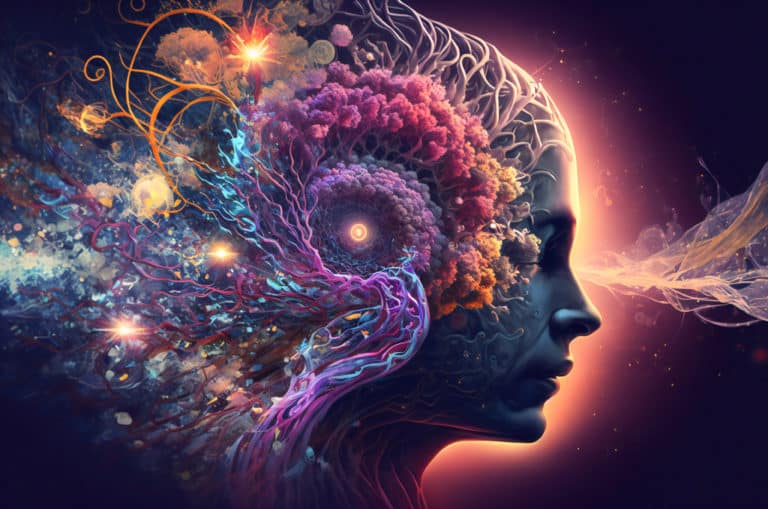By now you have certainly heard a lot of chatter about ChatGPT. While it may sound like your average chatbot or an overly-evolved friendly paper clip, the technology and processing is something that is beyond measure – and could have a grand effect on how we use and value AI technology. Not just in business but our personal lives as well.
What exactly is ChatGPT?
Well, one thing we know for sure is that it is difficult to say ‘ChatGPT’ ten times fast. Go ahead and try it, we will wait!
In reality, ChatGPT is an ’artificial intelligence-powered language model developed by AI research company: OpenAI’ with GPT standing for ‘Generative Pretrained Transformer’. In other words, ChatGPT has been trained using a large amount of text data. This allows it to respond and create content in a more human-like manner.
While incredibly intuitive, other AI-powered smart devices have failed to live up to the ‘live-human’ standard our best minds are trying to achieve. ChatGPT largely represents the next ‘big-step’ in chatbot innovation.

OpenAI is also the company responsible for releasing DALL-E, an AI-powered art generator which allows users to input descriptions of visual parameters via text and have it translated into digital art. While very neat and sometimes astounding, this has ruffled quite a few feathers in the art world. Whether or not AI-generated art, no matter how insightful the original prompt, can be considered art is a topic that folks are still debating.
Show me the results!
What exactly does ChatGPT do or accomplish? Products like ChatGPT are programmed and reinforced to ‘mimic writing styles, avoid certain types of conversation and learn from your questions.’ After a user has successfully submitted a query, that information is then stored for later use and reference by the bot. Not only will this be incredibly useful in advancing the basic knowledge of this tool but will also lead to more accurate and constructive answers.
In addition, ChatGPT beats other AI-powered smart devices by also having the ability to answer more specifically obscure history questions, write summaries, create content, provide news, and even code!
Already, competitors of all sizes are working diligently to create their own version of these AI-powered beauties. In time, we should see vastly improved results in terms of accuracy, industry application, customer satisfaction, and overall performance in the business sphere.
While this is all well and good, we must remember that ChatGPT is still in its infancy when it comes to providing accurate answer 100% of the time. Users are still finding gaps in knowledge or incorrect answers to some prompts but that’s part of the essence of a ‘language-model’. It will in turn use our input and corrections to gain a vaster understanding and the ability to help more users in the future.
Questionable Impact
Like almost every technological advancement, ChatGPT has been put to the test in many different environments, not all with positive results. Emotional support company Koko was among the first to test ChatCPT on a large scale. During a trial period, when some users reached out to gain advice from an anonymous volunteer, ChatGPT responses (co-written by the founder) were used instead. Shockingly, most of these encounters were met with better scores than speaking to an actual human. Unfortunately, when this information was released, people became enraged. From NBC news, ‘Academics, journalists, and fellow technologists accused him [Founder Rob Morris] of acting unethically and tricking people into becoming test subjects without their knowledge or consent.’
There are obviously some legal kinks to work out and we are sure to see this unravel and tighten back up in the future.

How will this affect my technology infrastructure?
In the end, we found that we would be remiss in not consulting ChatGPT on our answer. Using a series of three prompts, ChatGPT was able to produce some stunningly great answers regarding it’s effect on SMB technology infrastructure.
What possible positive effects does ChatGPT predict to have on SMB IT infrastructure?
- ‘Providing quick and accurate answers: small businesses often don’t have a dedicated IT team or have limited IT resources. ChatGPT can provide quick and accurate answers to their IT-related queries, possibly saving them time and effort’
- ‘Enhancing customer experience: Small businesses can integrate ChatGPT on their websites and social media pages, allowing customers to interact with it and get their queries resolved quickly. This enhances the customer experience and improves customer satisfaction.’
- ‘Automating repetitive tasks: ChatGPT can help small businesses automate some of the repetive tasks related to IT support, such as password resets, software installations, and troubleshooting. This can save time and productivity,’
- ‘Keeping up with the latest trends: ChatGPT can help small businesses stay updated with the latest trends in the IT industry, such as new software releases, cybersecurity threats, and emerging technologies. This can help them stay competitive and adapt to the changing business landscape.’
Does ChatGPT have the potential to replace or reduce the need for an IT or managed service company?
- ‘ChatGPT can provide quick and accurate response to a variety of IT-related questions and support requests, but it is important to note that it cannot replace an IT or managed service company entirely.’
- ‘Limited capabilities: While ChatGPT is capable of answering many IT-related questions and resolving some support requests, it has limited capabilities in comparison to an IT or managed service company. IT companies have the expertise, tools, and resources necessary to handle complex and unique IT issues that ChatGPT may not be equipped to handle.’
- ‘Personalized service: An IT or managed service company provides personalized service, tailored to the specific needs of their clients. ChatGPT, on the other hand, provides more general answers and support.’
- ‘Human interaction: Many businesses prefer to have human interaction when it comes to IT support, especially for more complex issues. While ChatGPT can provide quick and accurate response, it does not provide the same level of human interaction and empathy that a human IT support professional can provide. ‘
- ‘Proactive support: IT companies can provide proactive support through monitoring and managing a client’s IT infrastructure and proactively addressing issues before they become major problems.’
Does that last bit sound familiar?
At the end of the day, machines are still machines no matter how much work and effort we put into them. No program or bot can replace the level of detail, empathy, and problem solving that comes with being a real, live human being.
This is what Vodigy is built on.
We take great pride in our VSCAN service that we provide to all our clients. VSCAN stands for ‘Visual Scan of Computers and Networks’. This means we have a knowledgeable and experienced tech from our team to put actual eyes on your environment and look for trending issues that may become a major problem in the future.
These kinds of hiccups are not often spotted by monitoring alone and sometimes do not rise until something has already gone fantastically wrong.
Good thing there is a quick fix.
Getting started doesn’t have to be a pain, let Vodigy do the heavy lifting. Give us a call today!




